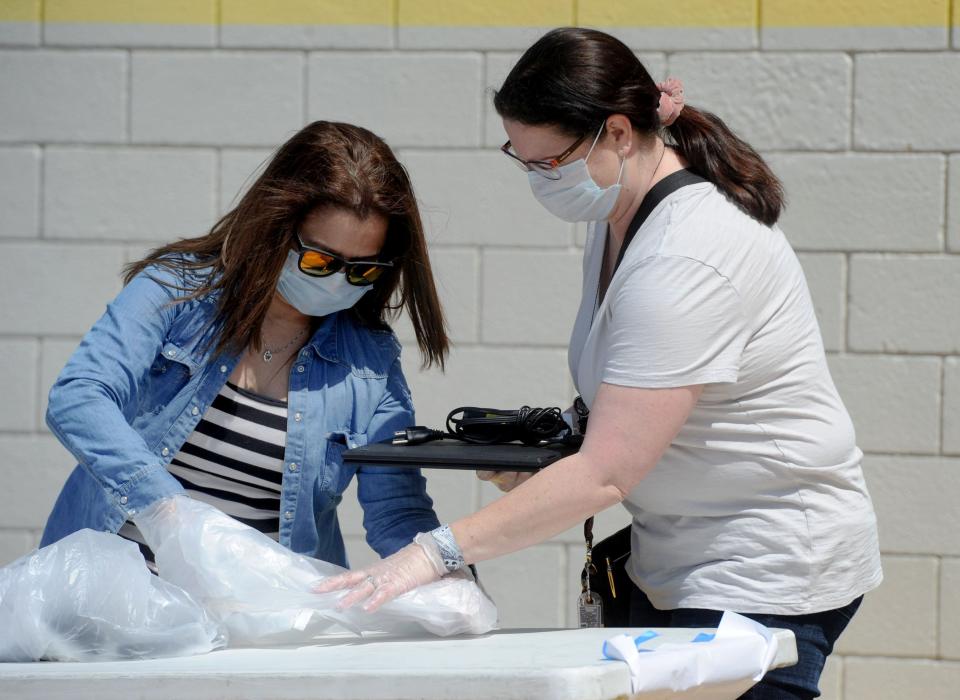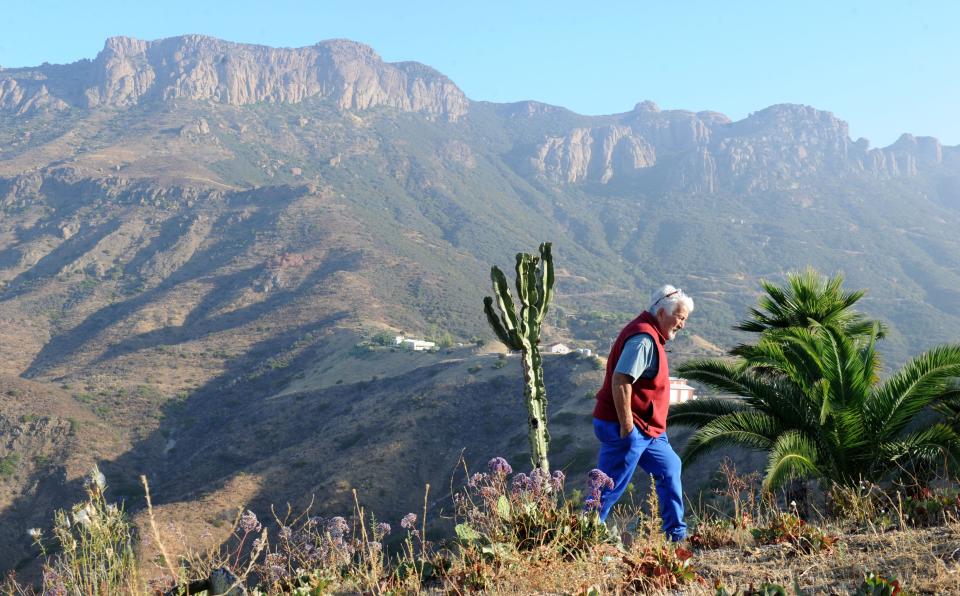In CA: Coronavirus rules loosen, but not fast enough for some
Golf courses and hiking trails reopen, but protestors want LOTS more things open. And tech companies help ensure California's non-wired students — estimated to be 20% of them — stay plugged into school. Plus: The country's largest pension system was underfunded before the economic collapse, and now its troubles will only get worse.
It's Arlene Martínez, with news to start your week off right. Or at least, informed.
But first, take a look at these shots from the California desert, where wildflowers appear elated to be alive. #flowerpower
Stay safe and informed with news and resources from across the USA TODAY Network and beyond: Sign up for In California today (it's free!).
Let's start with some top news:
More families of those killed in a helicopter crash with Kobe Bryant and his daughter have joined the NBA star’s widow in filing wrongful-death lawsuits against the companies that owned and operated the aircraft.
Traffic accidents and crash-related injuries/deaths have gone down by half since March 20, a report by the Road Ecology Center at UC Davis found. That has saved the state $40 million per day, or roughly $1 billion since sheltering-in-place began.
Also down by half since we hunkered down, visits to the state's community health clinics, troubling for funding and the vulnerable patients who get care through them.
A pastor and a rabbi threaten to sue the County of Ventura if it doesn't rescind portions of its stay-at-home order, saying it violates their First Amendment right to practice religion and hold in-person services.
Want more great Golden State news? Sign up for our California newsletter here.
You've probably seen different models predicting how many cases of coronavirus we'll have, when deaths will peak and more. Here's what experts use to build them.
Opponents of the state's shelter-in-place orders held rallies Monday in Sacramento and Newport Beach. Several other cities held similar protests over the weekend.
Finding out how many of us may already have antibodies to fight the coronavirus is key to reopening the country. Now we just need tests to figure that out.
Findings from an antibodies study of 863 adults in Los Angeles County suggest the coronavirus may be far more widespread than originally known, and have a much lower fatality rate.
Apple, Google, Microsoft and others donate tech to students without it

Jennifer Siebel Newsom has four children at home under the age of 10, two of whom have what she called learning differences. Distance learning has been a "real challenge at best," she said.
But her children can learn with a full belly and in a safe home. They also have access to wi-fi and laptops, something one in five children in the state lack, California's first lady said during Monday's midday coronavirus news briefing.
To help bridge that gap, major tech companies are donating thousands of devices to students across the state. Those include 100,000 air cards from Google, 10,000 Apple iPads and 70,000 laptops from Microsoft, Lenovo, Google and others.
Also during the briefing, Gov. Gavin Newsom provided updates regarding the race and ethnicity of people with coronavirus in the state.
Most notably, African Americans — who make up 6.5% of the population — saw nearly 12% of the deaths from coronavirus.
Meanwhile, lawmakers are starting to ask questions about how Newsom's administration is spending billions to fight coronavirus. A budget revise is due by mid-May, and the fiscal picture is not pretty.
Workers on the front lines
Costco, Sam's Club, Big Lots, other retailers and restaurants are offering special discounts, freebies and other perks to first responders and health care workers.
To farmworkers, grocery store workers, nurses, single moms-turned teachers and others, a coastal community says thank you via a virtual gratitude wall.
Just across the U.S.-Mexico border, American non-essential factories stay open. Workers are dying, yet a question lingers: “What will happen if all these factories close? ... People have to eat.”
Golf, hike and watch movies, all lit up

Golfers gotta golf, and golfers get their way, and so it is Riverside County is lifting its temporary ban and allowing them to tee off.
The Santa Monica Mountains and related trails are reopening in Ventura County but only on weekdays.
420 wouldn't be complete without 15 stoner movies and TV shows to watch right now. Just remember: Puff, puff, don't pass.
For cities struggling with pension debt, a new consideration
Long before the economy crashed due to the coronavirus, California's public agencies were straining under the weight of pension debt. An 11-year bull market had failed to make up massive losses the nation's biggest public pension system sustained during the Great Recession, when it lost over $56 billion in one year alone.
Jurisdictions up and down the state were paying millions more per year to the California Public Employees' Retirement System, or CalPERS, as I detailed here for the 10 cites in Ventura County.
So in recent years, cities started issuing new debt to pay off old pension debt in the form of pension obligation bonds. The companies touting the bonds liken it to refinancing a mortgage to take advantage of lower interest rates. Only instead of a fixed interest rate, the money will be invested assertively to draw a larger return, thereby reducing the out-of-pocket costs for a city or county.
But if the markets fall short, taxpayers make up the difference.
In Simi Valley, taxpayer groups took issue with the $150 million the city wanted to use to pay down its pension debt, and took it to court. The bond should go to the voters, the Ventura County Taxpayers Association and the Howard Jarvis Taxpayers Association argued.
Simi, rather than engage in a costly legal battle that could potentially set a precedent, withdrew the bond from consideration.
David Grau, president of the Ventura taxpayers group, said voters should get to weigh in on the bonds — school bonds, for example, require voter approval — because the loan isn't a like-for-like debt, it's an actuarial assumption of how the market will perform and dozens of other factors like how long retirees will live.
The groups praised Simi's decision to withdraw the bond. Grau said it would be one thing if the bond came with accompanying pension reform. But as it stands now, "You're really gambling with taxpayer money," he said. "It's just a way for politicians to get through the next election."
In February, state Sen. John Moorlach, R-Costa Mesa, introduced legislation that would require pension obligation bonds with maturities over 36 months to go before voters. Simi's would have been a 20-year payback.
Related: CalPERS stopped paying for stock market crash insurance in January, which analysts said cost the fund about $1 billion.
In California is a roundup of news from across USA TODAY Network newsrooms. Also contributing: LA Times, Quartz, Institutional Investor, CalMatters.
This article originally appeared on USA TODAY: Kobe, California, coronavirus, traffic, protests, pensions: Mon news

